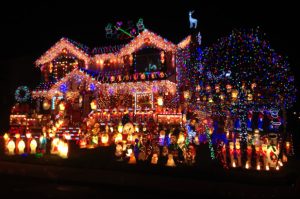Ewa Beach vs. Kapolei – Where Should Someone New Live and Why?
Aloha! You’ve decided to live in Hawaii’s paradise, but aren’t sure exactly what part of Oahu best suits your needs. While Ewa Beach and Kapolei are close together, they offer different lifestyle options for residents.
Ewa Beach
While Ewa Beach has long been a bedroom community of Honolulu, its robust growth means that shopping and commercial opportunities are increasing exponentially. According to the 2010 U.S. census, of Ewa Beach’s nearly 3,300 households, half had children under age 18 living there. Along with an excellent school system, home buyers have a wide choice of residences, which range from the more affordable Ewa Gentry’s Laulani to luxury golf course communities and gated communities. Overall, Ewa Beach has a more neighborhood feel than nearby Kapolei, and because it wasn’t a planned community per se, there is more architectural variety.
If you have school-age children, Ewa Beach may prove a better choice than nearby Kapolei. You’ll find larger living spaces available for families. Restaurants and stores are part of the neighborhood, in easy walking or biking distance. Parts of Ewa Beach have Kapolei beat on the affordability index, although the difference isn’t dramatic. If commuting is part of your daily ritual, though, keep in mind you’ll spend a lot of time battling traffic. Although Ewa Beach is just 22 miles from downtown Honolulu, it is often a one-hour commute during rush hour.
Kapolei
Kapolei is an Oahu planned community, named after a volcanic cone and situated on former sugarcane and pineapple fields. It is now becoming Oahu’s second urban center, after Honolulu, and the area is growing fast. Approximately 100,000 people call Kapolei home. There’s easy access to the beach, miles of hiking trails, parks and golf enthusiasts can choose from various world-class courses. Kapolei offers plenty of community activities, which is a great way to meet new neighbors.
In Kapolei, entertainment and shopping options abound, and draw visitors from all over the island. That includes Hawaii’s third largest shopping center, Ka Makana Alli, which boasts more than 100 stores and restaurants. There are also plenty of big box retail stores for all your necessities. Unlike Ewa Beach, however, you’ll need to drive to get to most of these large and small retail destinations.
Kapolei is a cooler place to live than Ewa Beach – in the sense of temperatures, not hipness. It’s something to consider if you aren’t fond of summer heat. Another benefit of Kapolei vs. Ewa Beach is an easier commute to Honolulu, as Kapolei contains more access points to the highway than its neighbor. Those seeking condo or townhome living may prefer Kapolei, because while Ewa Beach has plenty of those residential choices its focus is on the single-family home.
Contact Us
If you’re new to Hawaii and looking to buy or rent a home, you need a knowledgeable, experienced realtor familiar with all aspects of the Hawaiian real estate market. Contact Island Realty Group LLC at 808-689-7407 or IslandRealtyGroup@irghi.com.
March 29, 2019











